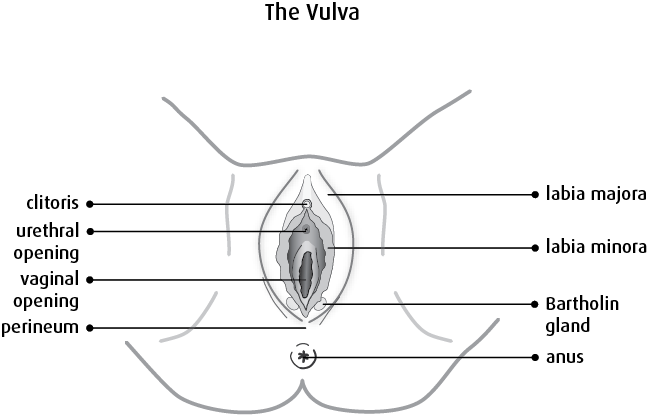
Vagina or Vulva
Would you know the difference?
Let’s face it; we are only just becoming comfortable with using the word Vagina. I am sure we all gave ours a unique name at some time or another. I am sure you get the picture of terms such as twinkle, nunu, fluffy buffy, vag, fanny, and fluff. If any of us have daughters, we have probably passed on those names to them in a bid not actually to have to talk about those private parts. And of course,e when discussing gynaecological problems having some cute name down there cal make that conversation far more comfortable.
Well, let me ask you this question? If you were to go and see your GP to discuss problems, what would you say? And would you know your vagina from your vulva?
We can create so much confusion when it comes to our gynaecological h. We only have to start using HRT or have a Mirena coil inserted throw us into a google rabbit hole of wondering why we have suddenly started having periods or sex is beginning to feel uncomfortable. So we are going to unravel this question and look at the answers.
Vagina
The vagina sits inside our body. It is self-cleaning, and it has a very acidic environment. It does not take kindly to any form of cleansing, which may include douching.
The good bacteria (lactobacillus) becomes disrupted if we clean with douching.
Water has a PH of 7, which is neutral. Inside the vagina, the PH is between 3.5 – 4. Regular soaps or bath products have a PH of 8-10, which is too high.

Vulva
The Vulva has a PH of 5, which is the PH we have in the skin. Regular soaps or bath products have a PH of 8-10, which is too high. Meaning if you use this type of cleanser on this area, you will disturb the PH of the Vulva.
PH rules over this area of our bodies. Meaning it controls excellent and harmful bacteria and thrush or yeast, which is part of our normal flora.
Are we compromising our Vaginal health?
Although men in the pharmacies have created most products, they have no idea of the female anatomies. They label the products as being for the Vagina, and so they have been designed with a high acidic PH. Using these products on the Vulva has a higher PH, which is like washing that area with lemon juice.
So what about products such as Tampax. Well, have you ever put a Tampax in a glass of water and watched the sides shed? That is the same issue when they are inserted into the vagina. Tampax, which has a cotton-like feel, is made out of synthetic fibres and coated in plastic. Now you know why if your flow is lighter, it’s painful to insert a Tampax or take it out, for that matter.
We are all aware that there is no money in women’s health. It is stuck in the 1970s, and yet money is thrown at men’s health. We only have to look at the recent adverts for that famous blue pill. So what’s the alternative? Well, we have to be that woman who talks openly about female body parts, shares her knowledge with daughters, sisters and friends, and refuses to take a shrug of the shoulders as a final answer from any GP. Asking for your gynaecological health to be taken seriously is not a crime; it is a right. By talking openly, we also begin to appreciate our bodies and stop comparing them to what is deemed the perfect shape because we are all different in every way. There are no exclusions.
We have to begin looking at the products we use on a day to day basis. Particularly now that we are in Menopause. By just thinking about the symptoms of a dry vagina, we are faced with discussing how we can improve the symptoms. Yet, we may just reach for the most advertised product on the market without really understanding how it will affect the PH balance of our Vagina.
So what about discharge, what is expected and what isn’t?
Discharge is a little sour-smelling because of the lactobacillus, but during teenage or pregnancy, you can get more, and it will become more sticky during ovulation.
If you have bacterial vaginosis or an STI, the discharge can change, and it becomes foul-smelling and can change colour depending on the bacteria. If there is something wrong, then lookout for a different smell or a different colour.
However, with thrush, there is no smell, but it can become consistent with cottage cheese.
We do need to take action if there is any vaginal bleeding in between periods, after sex or after menopause. However, some forms of HRT can create false periods while your body becomes accustomed to the change in hormone levels.
DEODOC
DeoDoc was born out of a sheer need for a better solution. Sisters Dr Hedieh Asadi and Hasti Asadi, along with Professor of Obstetrics and Gynecology, Dr Gunvor Ekman Ordeberg, are creating the change they want to see as the first and only intimate care brand founded and run by women doctors. The trio is breaking taboos and empowering women with the knowledge they need about their bodies. The founders and the brand are multi-awarded within the wellness space and was recently honoured as a WWD Wellness Power Player in June 2021.
* This post contains affiliate links *

